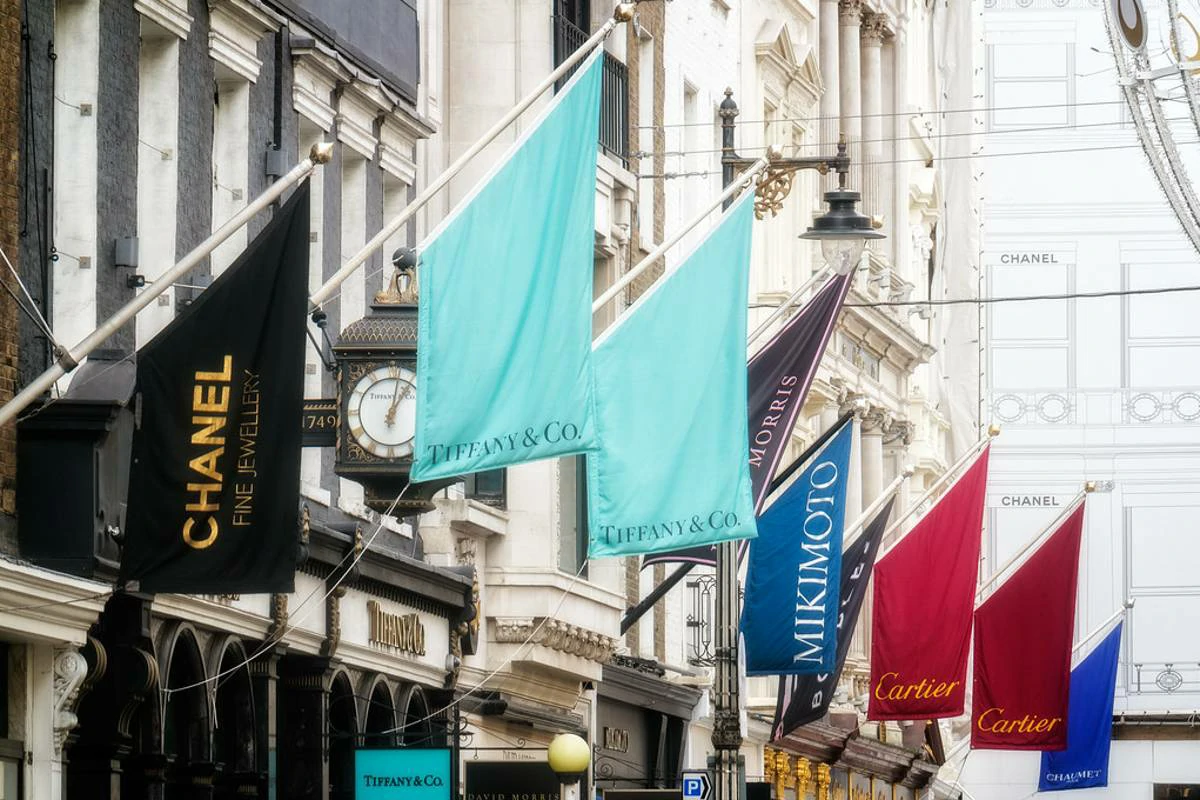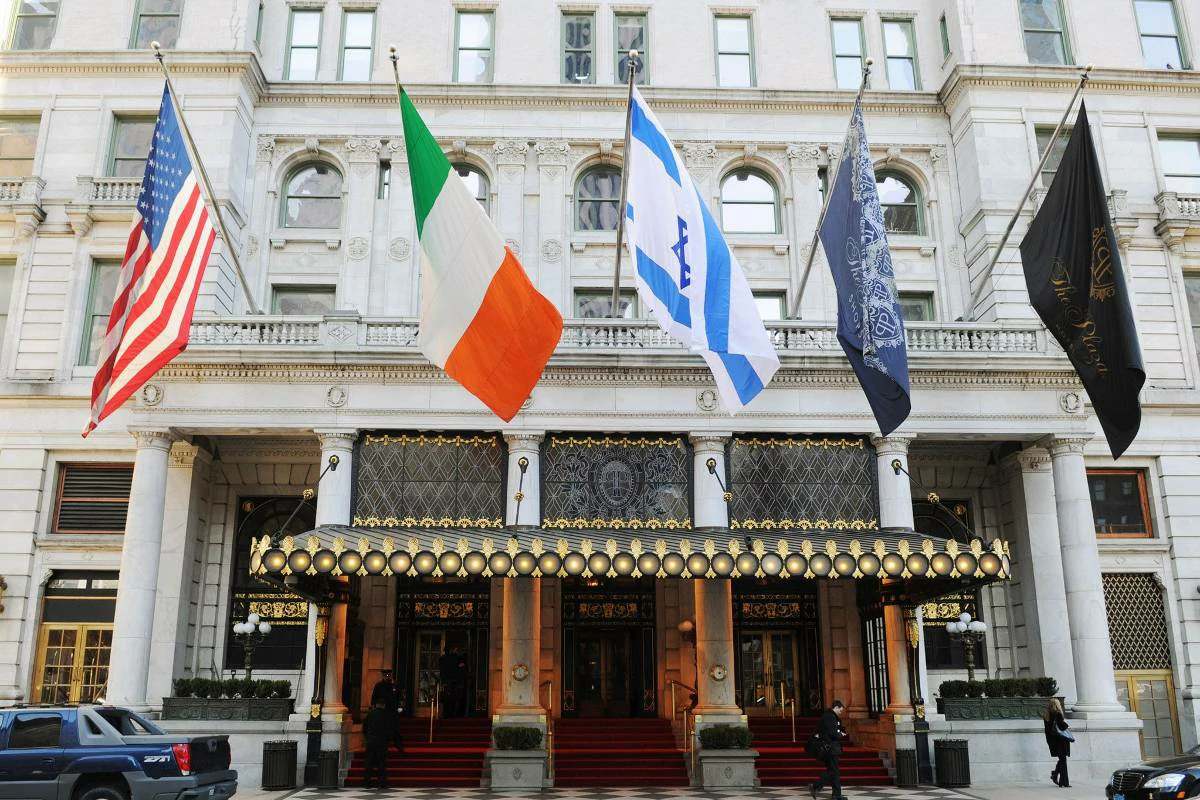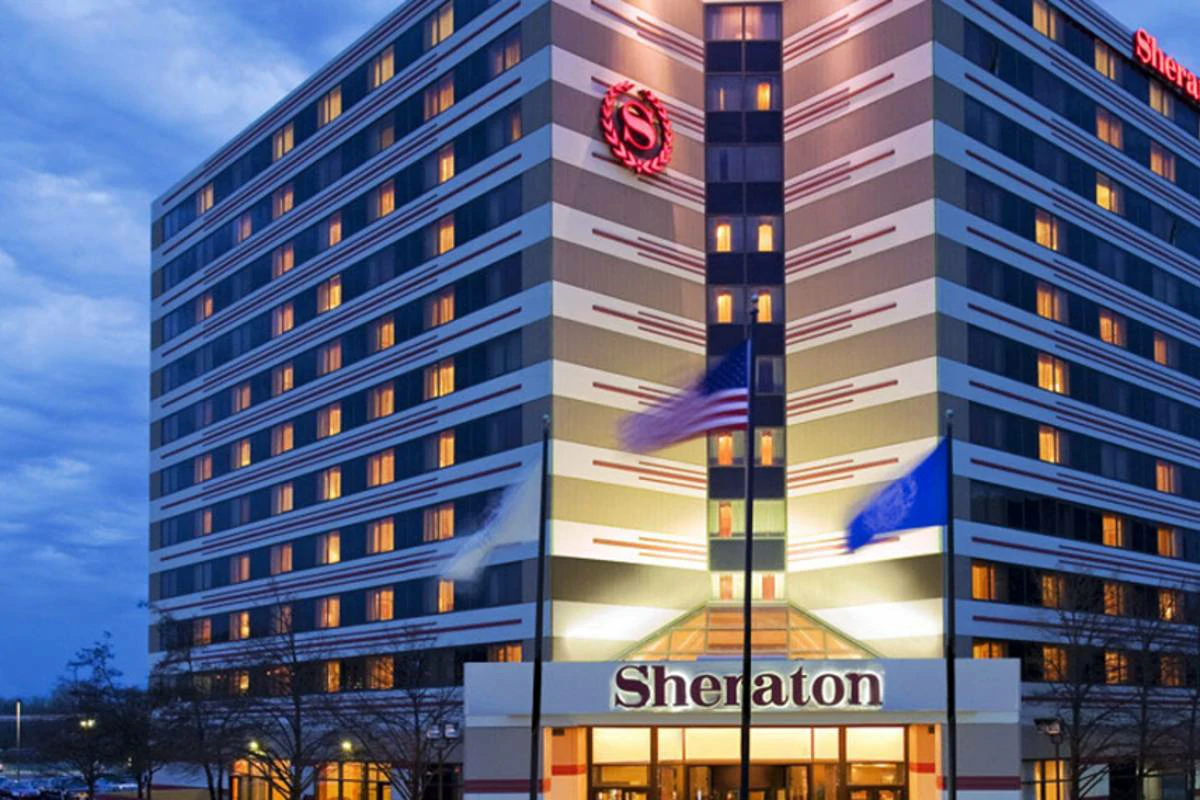What Does Hotel Flag Mean? Answer is – A hotel flag refers to the brand associated with a hotel property. It’s like the “family name” of the hotel. Prominent hotel flags include Marriott, Hilton, Hyatt, and Best Western. These brands establish standards, amenities, and the overall guest experience you can expect across their different locations.
Summary
- Hotel flags represent well-known hotel brands.
- Flags dictate consistency in quality, services, and style.
- Investors and developers consider flags when deciding on hotel projects.
- Different flags cater to varying budgets and traveler preferences.
What Does Hotel Flag Mean?

What is a hotel flag?
When you’re booking a hotel, you’ll likely encounter names like Marriott, Hilton, IHG, or Wyndham. These aren’t just the names of individual hotels; they’re hotel flags.
A hotel flag represents the brand that operates a particular hotel property. Think of it as the hotel’s family name, signifying a set of standards, amenities, and a general style of hospitality you can expect.
Just like different car brands offer distinct features and reputations, hotel flags cater to a variety of needs, budgets, and travel preferences. Some flags are synonymous with luxury, while others focus on affordability and convenience.
Why do hotel flags matter?
Hotel flags play a crucial role in the hospitality industry for several reasons:
Consistency: Perhaps the biggest advantage of hotel flags is consistency. When you stay at a Marriott in New York and then a Marriott in Los Angeles, you have a reasonable expectation of a similar level of service, room quality, and amenities. This predictability is especially important for business travelers and those who value a reliable experience.
Brand Recognition: Well-established hotel flags enjoy strong brand recognition. Travelers often develop loyalty to specific flags based on past experiences, rewards programs, and brand reputation. A recognizable flag can instantly signal to a traveler what kind of experience they can anticipate.
Trust and Reliability: Hotel flags build trust. When you book a hotel with a familiar flag, you have a baseline understanding of what you’re getting. This reduces the risk of unpleasant surprises and makes it easier to compare options, especially in unfamiliar destinations.
Development and Investment: Flags are essential for hotel development and investment. Investors and developers are often more likely to back a hotel project associated with a strong brand. The flag brings instant recognition, a built-in customer base, and established operating procedures, increasing confidence in the project’s success.
Sarah Williams Expert Opinion
“Hotel flags are the backbone of the modern hospitality industry. They offer travelers the assurance of quality and consistency, while providing developers with a proven framework for success.” – Sarah Williams, Hospitality Consultant with over 15 years of experience.
Understanding Hotel Flags
1. Major hotel brands and flags
The world of hotel flags is vast, with dozens of brands catering to different traveler segments. Let’s break down some of the most prominent players by category:
Luxury Flags
These flags are associated with exceptional service, lavish accommodations, and top-tier amenities. Think of names like:
Upscale Flags
This category offers high quality and modern design, often targeting business travelers and those seeking a touch of refinement. Examples include:
Midscale Flags
Midscale flags prioritize comfort and functionality at an affordable price point. They’re popular with families and budget-conscious travelers. Consider these brands:
Economy Flags
The focus here is on no-frills accommodations at the lowest possible price. These flags are suitable for travelers needing just a basic, clean place to stay. Some well-known names include:
2. Independent hotels vs. flagged hotels
Not every hotel flies a flag. Let’s examine the key differences between independent and flagged hotels:
Independent Hotels
Unique Character: These hotels aren’t affiliated with major chains. They offer individuality, often showcasing local design and a more personal touch.
Risk Factor: The quality and experience can vary significantly, as there’s no overarching brand standard to rely on. Research is crucial when choosing an independent hotel.
Limited Loyalty Programs: Typically, independent hotels lack the extensive rewards programs offered by major flags.
Flagged Hotels
Predictability: You know what you’re getting in terms of service and amenities, reducing uncertainty.
Rewards Programs: Offer access to loyalty programs where you can earn points and redeem them for future stays.
Potential for Less Charm: Some travelers find flagged hotels lack the unique charm and personality of independent properties.
Mark Johnson Expert Opinion
“Independent hotels can be gems waiting to be discovered, but for travelers who prioritize consistency and the benefits of loyalty programs, flagged hotels often offer peace of mind.” – Mark Johnson, Travel Blogger and Hospitality Industry Analyst.
The Role of Hotel Flags in Development and Investments

Hotel flags aren’t just about guest experience; they play a pivotal role behind the scenes in how hotels get built and financed.
1. How flags attract investors
Hotel development projects carry inherent risks. Investors want to minimize uncertainty and maximize their chances of a successful return. Hotel flags help achieve this in several ways:
Brand Recognition and Trust: Flags with a strong track record offer instant recognition. Investors know there’s a built-in customer base familiar with the brand and its standards. This reduces the risk of the hotel failing to attract guests.
Established Operating Systems: Major hotel brands have refined operating procedures for everything from reservations and housekeeping to marketing and revenue management. Investors trust that these systems will lead to operational efficiency and profitability.
Access to Resources: Flags provide franchisees with access to resources like centralized reservation systems, marketing support, training programs, and purchasing power. This support infrastructure makes it easier for new hotels to get off the ground and compete.
Financing Opportunities: In some cases, hotel brands or their parent companies might offer financing assistance or have relationships with lenders who are more likely to approve loans for flagged properties.
2. The franchise model and flag agreements
The franchise model is widespread in the hotel industry. Here’s how it works and connects to flags:
The Brand: The hotel brand (the flag) owns the intellectual property – the name, logo, standards, reservation systems, etc.
The Franchisee: This is typically an individual or company that wants to develop and operate a hotel. They enter into a franchise agreement with the brand.
The Agreement: The franchise agreement outlines the terms of the relationship. It includes:
- Fees: Franchisees pay fees to the brand for the use of the name and resources.
- Standards: Franchisees must adhere to the brand’s quality controls and operating procedures.
- Marketing and Support: The brand provides marketing and other forms of support to the franchisee.
Jennifer Stevens Expert Opinion
“The franchise model creates a win-win situation. Hotel brands expand their reach without the capital outlay of building hotels themselves, while investors and developers gain the backing of a trusted name.” – – Jennifer Stevens, Real Estate Investment Specialist with a focus on hospitality.
Choosing a Hotel Based on Flags

Understanding hotel flags empowers you to find accommodations that perfectly align with your needs, budget, and travel style. Here’s how to leverage that knowledge:
1. Matching flags to your budget
Luxury: If you’re looking to splurge and prioritize top-of-the-line service and amenities, focus on luxury flags. Be prepared to pay a premium for the experience.
Upscale: These flags provide a balance of quality and affordability. They’re an excellent choice if you want a comfortable and stylish stay without breaking the bank.
Midscale: The sweet spot for many travelers. Midscale flags offer clean, functional accommodations at reasonable prices, ideal for families or when your hotel is primarily a base to sleep and recharge.
Economy: The most budget-friendly option. Economy flags are suitable if you need a basic place to crash for the night and plan to spend most of your time exploring.
2. Flags that cater to specific travel styles
Business Travelers: Look for flags known for efficiency, reliable Wi-Fi, in-room workspaces, and possibly meeting facilities. Brands like Marriott, Hilton, Hyatt, and their sub-brands often excel in this area.
Families: Consider flags with spacious suites, complimentary breakfast, pools, and kid-friendly amenities. Residence Inn, Embassy Suites, and Homewood Suites are popular choices.
Leisure Travelers Seeking Experiences: For boutique accommodations or resorts with a strong local flavor, research upscale flags and carefully curated independent hotels. Some hotel groups offer collections focused on unique design and experiences.
Extended Stays: Brands specializing in extended stays often have kitchenettes, laundry facilities, and rates that decrease with longer stays. Consider flags like TownePlace Suites or Staybridge Suites.
3. The importance of brand loyalty programs
If you travel frequently, joining hotel loyalty programs can be immensely beneficial. Most major flags have robust programs that allow you to:
Earn Points: You accumulate points with each stay, which can be redeemed for free nights, upgrades, or other perks.
Elite Status: As you stay more, you might achieve elite status tiers that unlock additional benefits like complimentary breakfast, room upgrades, and late checkout.
Exclusive Offers: Loyalty members often receive special promotions and access to exclusive rates.
Emily Thompson Expert Opinion
“Choosing a hotel flag isn’t just about the single stay. Think long-term. If a particular flag aligns with your travel style, joining their rewards program can pay off down the road.” – Emily Thompson, Frequent Traveler and Travel Rewards Consultant
The Future of Hotel Flags

The hotel industry is dynamic, and flags must adapt to stay ahead of changing trends. Here’s a glimpse into what the future might hold:
1. Trends in hotel branding
Experiences over Amenities: While core amenities remain important, travelers increasingly crave experiences. Flags will need to curate stays that go beyond the room, offering local immersion, unique activities, and a sense of connection to the destination.
The Wellness Focus: Wellness is a megatrend, and hotels are tapping into this. Expect to see flags incorporating wellness elements into their offerings, from in-room fitness options and healthy menus to spa partnerships and mindfulness programs.
Technology Integration: Seamless technology will be essential. Contactless check-in, mobile room keys, and smart room controls that allow guests to personalize their environment are becoming expected rather than exceptional.
Sustainability Matters Eco-conscious travelers are on the rise. Flags demonstrating strong sustainability practices, from reducing waste to supporting local communities, will gain favor with this growing market segment.
Blurring the Lines The traditional categories of hotel flags are becoming less rigid. We’re seeing upscale brands offering more affordable options and midscale brands upping their design game to compete in a more style-conscious market.
2. The Rise of Boutique and Lifestyle Hotels
One of the most significant shifts is the growing popularity of boutique and lifestyle hotels:
What are they? These hotels prioritize personality, design, and a highly curated guest experience. They often tell a story about the location or embody a specific aesthetic. You’ll find them in both independent properties and within collections offered by major hotel groups.
Why the appeal? These hotels cater to travelers desiring an alternative to cookie-cutter chain hotels. They offer individuality, a sense of discovery, and often a stronger connection to the local neighborhood.
The Flag Response: Major flags are taking note. They’re launching their own lifestyle brands or acquiring existing ones. Examples include Marriott’s Autograph Collection, Hyatt’s Caption, and Hilton’s Tapestry Collection.
Dr. Peter Jones Expert Opinion
“The future of hotel flags is about choice and personalization. Travelers will have an even wider array of options, from the trusted standards of traditional flags to the unique and experiential offerings of boutique and lifestyle brands.” – Dr. Peter Jones, Professor of Hospitality Management at a leading university.
What This Means for Travelers
The evolving world of hotel flags translates into exciting possibilities for travelers:
More Options to Fit Your Style: Whether you want predictability, luxury, local flavor, or something in between, there’s likely a flag (or an independent hotel) that speaks to your preferences.
The Importance of Research: The abundance of choice makes it even more important to research hotels before booking. Consider what matters most to you during your trip and find accommodations that align with those values.
Flexibility is Key: Don’t feel locked into one flag or category. Your perfect hotel might be a trusted chain in one city and a charming boutique property in another.
Conclusion
Hotel flags are far more influential than many travelers initially realize. They represent a shorthand for the type of experience, amenities, and level of service you can expect. Understanding the world of hotel flags empowers you to:
- Find the Right Fit: Whether you prioritize budget, luxury, location, or a specific travel style, knowing hotel flags helps you efficiently narrow down your options.
- Benefit from Loyalty Programs: If you travel frequently, aligning yourself with one or a few flags and joining their rewards programs can unlock significant perks over time.
- Make Informed Decisions: Researching brands, combined with reading reviews of individual properties, allows you to make confident booking choices.
- Navigate the Evolving Landscape: As trends like wellness, boutique hotels, and technology integration reshape the industry, your knowledge of flags aids you in selecting hotels that align with changing preferences.
The next time you’re planning a trip, don’t just think about the destination – consider which hotel flag will best complement your overall travel experience.
FAQs
Q: Are flagged hotels always better than independent hotels?
Not necessarily. While flagged hotels offer consistency and predictability, exceptional independent hotels exist. Thorough research is key if you opt for an independent property. Look for reputable websites with guest reviews and focus on hotels that clearly communicate their style and offerings.
Q: How do I choose the right hotel flag for me?
Consider your priorities:
- Budget: How much are you willing to spend per night?
- Travel Style: Are you a business traveler, a family on vacation, or a solo adventurer?
- Amenities: What amenities are non-negotiable (pool, fitness center, breakfast, etc.)?
- Location: Is being in a specific neighborhood or close to attractions crucial?
- Rewards Programs: Do you travel frequently enough to benefit from a particular brand’s loyalty program?
Q: Can the same flag have hotels with vastly different quality?
Yes, even within a single flag, individual hotels can vary. Factors like age, management, and recent renovations can impact the guest experience. This is why it’s important to read reviews for specific hotels in addition to researching the overall flag.
Q: Are new hotel flags always trendy and modern?
While new flags often aim to be innovative, trendiness isn’t guaranteed. Research their brand philosophy, target audience, and look at images of actual properties to get a sense of their style.






